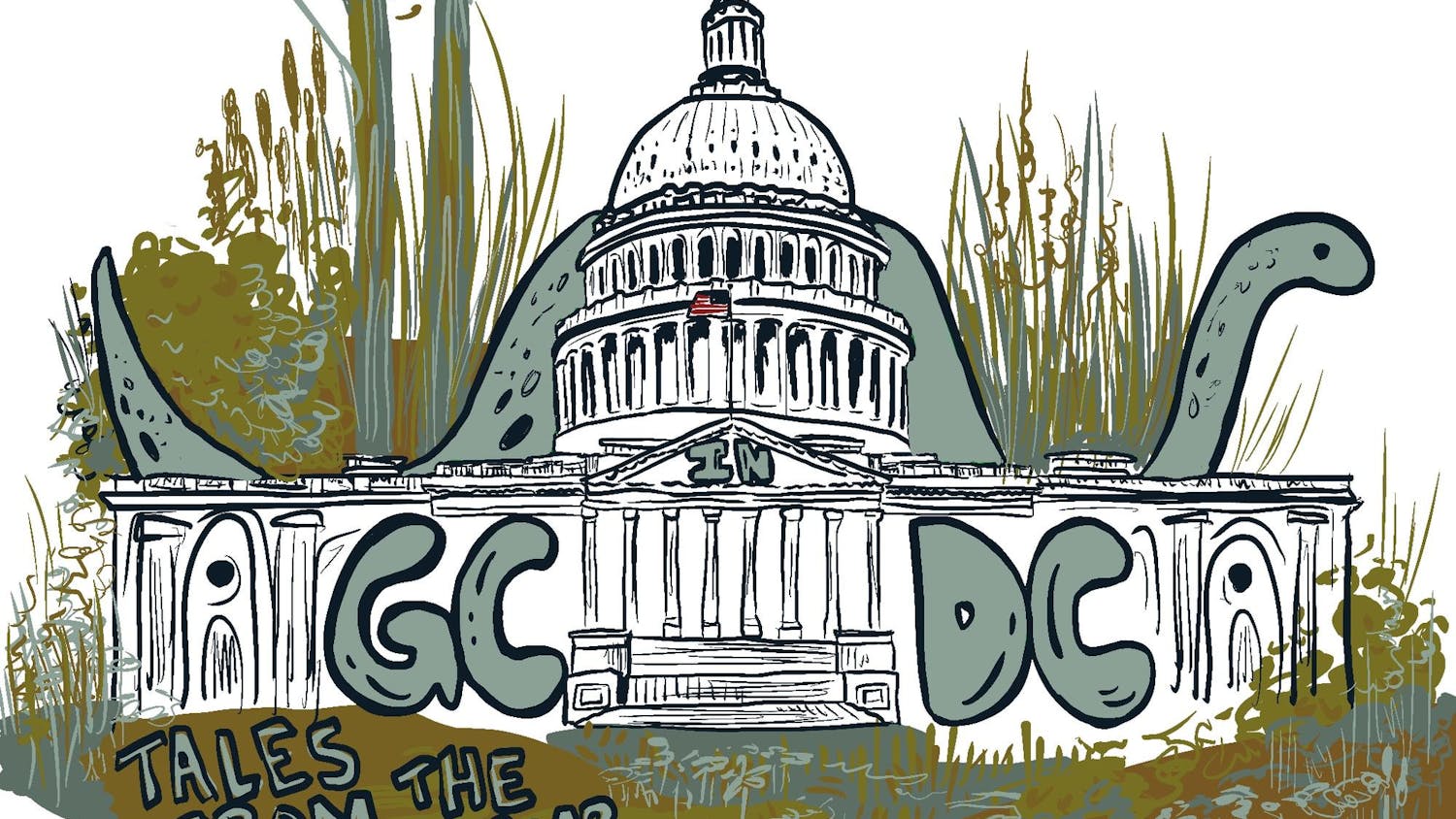I will admit I love Hulu’s “The Dropout” (2022), a highly-anticipated miniseries on Theranos founder Elizabeth Holmes. It’s beautifully written, beautifully shot and beautifully acted. Even teachers at my high school, Holmes’ alma mater, have commented on how well the miniseries captured Holmes’ eccentric character. But the show occasionally falls into the pothole of becoming what it means to analyze: America’s obsession with narrative smoke and mirrors.
Elizabeth Holmes is interesting not just on the surface level but because of why exactly people fell for her shtick. She tricked some of the world’s top minds: venture capitalists, CEOs and political legends alike, and not just with her phony tech achievements and uncanny valley-esque Steve Jobs impersonation. She used identity and narrative. She invented the girlboss archetype: the pretty, blonde, wunderkind feminist breaking down the glass ceiling. And she knew what she was doing.
My verdict is still out on whether the show knows the same. The first three episodes of “The Dropout” show Elizabeth Holmes as a geeky, socially awkward underdog — a high school and college student struggling to find her way. It’s been criticized for humanizing her, for making you root for her. But does it?
On one hand, Elizabeth Holmes is human. She has a backstory — and a life — and Amanda Seyfried and the writers’ room skillfully portray her evolution from awkward teenager to con artist. It’s ridiculous that the show should exist just to make Holmes look bad — that’s bad writing, and it’s wrong. She defrauded millions, but she’s not a caricature.
On the other hand, Elizabeth Holmes is smart. She knew how to manipulate people, she knew her mission and she knew how to leverage her image to get it. “The Dropout” depicts the girlboss aura that orbited her, the feminist mystification the media built up around her, but I’m not convinced it sufficiently shows Holmes’ own role in that. The show often frames Holmes cornered on talk shows, being pressed by faceless interviewers about the glass ceiling, rather than showing her active role in the ‘yassified’ media campaign.
“The Dropout” deals with a difficult story, even a mythos, and overall it does it well. But at times I think it falls victim to its own thesis. The show took the Elizabeth Holmes story, and packaged it up into a neat narrative that takes her fractured, awkward adolescence, her traumatic past and her years-older boyfriend and collates it with her drive — even desperation — for success. Just like Elizabeth Holmes leveraged America’s obsession with success stories to fool the world, “The Dropout” sensationalizes and humanizes her tale for its own blinged-out portrayal.
America’s love of narrative goes beyond Holmes; it permeates our politics, our celebrity culture, our media and even our tech startups. It’s a kind of accepted corruption — this willingness to listen to the long-suffering, embellished anecdotes of public figures for the purpose of being entertained or inspired. But television is art, and I’m always willing to give art a pass. Though I think “The Dropout” could use more self-awareness, I don’t condemn its surrender to the power of narrative. Stories are the best way I know of digesting truth, and this is a damn good one.






